What is biodiversity and why is it important?
Wednesday, September 27th from 10:00 am - 11:30 am PDT / 1:00 pm - 2:30 pm EDT
Click here to read conversation
As the first e-dialogue from the Biodiversity Conversations: How important are the common loon and polar bears to Canadians? series, panelists began with a broader discussion on the nature of biodiversity conservation, before moving into more specific issues. They explored the critical relationship between human well-being and biodiversity, focusing on diversity as a general theme, as well as the current state of biodiversity loss in Canada. They discussed why it is imperative for Canada now, looking at the 2016 Living Planet Report, the state of North America’s Birds 2016 and the connection between biodiversity conservation and regenerative sustainability.
Interested in learning more about biodiversity? Click here to visit our curated resource library.
Moderator
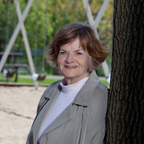 |
Professor Ann Dale, Moderator, held a Canada Research Chair in Sustainable Community Development (2004-2014) at Royal Roads University, School of Environment and Sustainability. A former Trudeau Fellow Alumna (2004), she is a Fellow of the World Academy of Arts and Science, chairs the Canadian Consortium for Sustainable Development Research (CCSDR), a Board Member of the World Fisheries Trust and the founder of the National Environmental Treasure (the NET). Current research interests include governance, social capital and agency, biodiversity conservation, place-based and virtual sustainable communities. She is a recipient of the 2001 Policy Research Initiative Award for Outstanding Contribution to Public Policy for her book, At the edge: sustainable development in the 21st century. Professor Dale is actively experimenting with research |
|
|
Dr. Dawn Bazely is a Professor in Biology at York University and was Director of York University’s Institute for Research and Innovation in Sustainability (2006-2011, 2012-2014). She is an ecologist, with degrees in Biogeography and Environmental Studies (1981) and Botany (1984) from the University of Toronto. Her doctorate in animal behaviour, from the University of Oxford (1988), was followed by research fellowships both here and at the University of Cambridge, before she joined York University in 1990. Dawn studies grassland and forest management, climate change impacts on ecosystems, invasive species and and science policy, and has published widely. She strives to inspire nature enthusiasts through her courses in ecology and sustainability, public outreach, and service. Dawn believes that scientists must be excellent communicators: she is active as a blogger and on Twitter. Dawn has won York University's Senior Faculty Teaching Award, and was the Globe and Mail's Hotshot (top) Professor of 2014 in its annual universities report. In 2011 Harvard University awarded her a Charles Bullard Fellowship, given to those most likely to make a significant impact in forest conservation and research. |
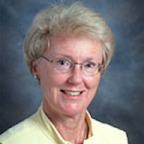 |
Dr. Valerie Behan-Pelletier is an Honorary Research Associate in the Invertebrate Biodiversity Program at Agriculture and Agri-Food Canada in Ottawa. She is an expert on soil mites in ecosystems globally, and has a broad research interest in biodiversity and ecology of arthropods in soil and canopy habitats. She is currently engaged in research initiatives on soil mites across North America and in New Zealand. She is an Editor of the Global Soil Biodiversity Atlas, a Project of the European Commission and the Global Soil Biodiversity Initiative, scheduled to be released in Fall 2015. She is past member of the UNEP Scientific Committee on Problems of the Environment (SCOPE) Soil and Sediment Subcommittee. Valerie has been a recipient of Japanese Society for the Promotion of Science Fellowship, is a past member of NSERC’s GSC on Evolution and Ecology, and the Scientific Committee of the Biological Survey of Canada. She is a graduate of University College Dublin, Ireland and McGill University, Montreal. She brings her passion for and knowledge of biodiversity to the Women for Nature Initiative |
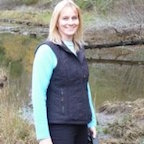 |
Holly Clermont is an experienced conservation biologist and nascent social scientist (MA, BSc, Dipl. Renewable Resource Mgmt) with interests in natural resource and health/safety science and practice. Based in Nanoose Bay, British Columbia, her mid-life foray into social science doctoral research was motivated by everyday challenges faced by natural science practitioners to slow and reverse trends of widespread biodiversity loss. Despite endless promotion of sustainabilty principles, 'upholding the public interest through science-based stewardship of ecological resources' (the biologist’s credo) is routinely part of a zero-sum game of environment versus economy. Holly's doctoral research, 'The Underbelly of Economy versus Environment Conflicts: Detangling Sources of Tension in Contentious Natural Resource Decisions' confronted this challenge, looking at two cases of potential energy development in coastal B.C. (oil pipeline expansion and run of river hydro generation). With this work, Holly hopes to help achieve more positive outcomes for sensitive ecosystems and for sustainable resource development. |
 |
Chloe Dragon Smith is a young Metis woman from the small northern city of Yellowknife, Northwest Territories. Of Chipewyan and European heritage, she grew up close to her Indigenous cultural values and learned traditional skills for living on the land. This northern upbringing shaped her values today. Chloe is a trained canoe instructor, an open water scuba diver, an avid hiker, and a hockey player. She loves to travel and she seeks out Nature in every new place she visits. She leads by example. Chloe holds a degree in Earth Science from the University of Victoria. While educated in Science, she is keenly interested and has found her niche in working with people on the social/cultural benefits of the natural world. Currently, Chloe works with the Canadian Parks Council, co-chairing an intergenerational citizen working group called Connecting a New Generation with Nature. The working group has created a document called The Nature Playbook: Take action to connect a new generation of Canadians with Nature. |
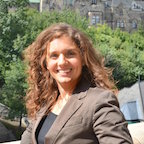 |
Eleanor Fast joined Nature Canada as Executive Director in October 2014. She brings to the position a passion for nature and extensive senior level experience in the not-for-profit and government sectors working in science policy, research, advocacy, communications and fundraising. Previously she has worked at the Federation for the Humanities and Social Sciences, the Council of Canadian Academies, the Library of Parliament and the British High Commission in Ottawa. Eleanor completed undergraduate and graduate degrees in biodiversity at McGill University. Eleanor loves any chance to get outside and experience the NatureHood, whether it is through her daily bike to work, an evening walk by the river, playing in the park with her children, or watching the birds at her backyard feeders. |
 |
Susan Gosling's love of nature started at a young age. Growing up in a small town situated on the beautiful Lake of the Woods, she often retreated to the quiet forest near her home to spend time along the water's edge. She obtained a Bachelor of Science in Honours Botany at the University of Manitoba and then went on to become an HLA (Human Leucocyte Antigen) technologist at Red Cross where working in a lab and developing a protocol for cryopreservation of white blood cells would have significant relevance in the future. However, realizing that that she connected with plants naturally, she hung up her lab coat and did a pre Masters degree in Landscape Architecture followed by a Masters in Plant Science with specialization in tissue culture. Years later her knowledge and experience of plants and cryopreservation came together and through the Gosling Foundation she led the creation of GRIPP (Gosling Research Institute for Plant Preservation) in 2012. GRIPP aims to preserve threatened and endangered plant biodiversity through development and application of new technologies in cloning and cryopreservation and has the capacity to preserve the germplasm of the entire Canadian plant biodiversity. |
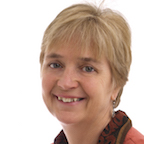 |
Anne Murray is a lifelong birdwatcher, naturalist, and author whose books celebrate the wonders and beauty of Boundary Bay and the Fraser delta, British Columbia. She is an outspoken advocate for nature conservation, writing regular newspaper columns, articles and blogs, commenting on radio and television, and making presentations to the public. Her record of volunteerism is exceptional, including several years serving on Nature Canada's board of directors and as President of BC Nature. She is currently on the board of Bird Studies Canada and has volunteered with Sierra Legal Defence Fund (now Ecojustice), the Delta Farmland and Wildlife Trust, and the Delta Museum and Archives, among other organizations. A recipient of the Queens Golden Jubilee medal, Anne has always been a true friend of Nature Canada, and of nature. |



